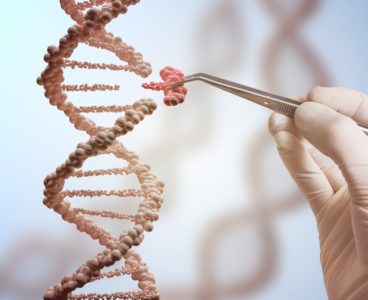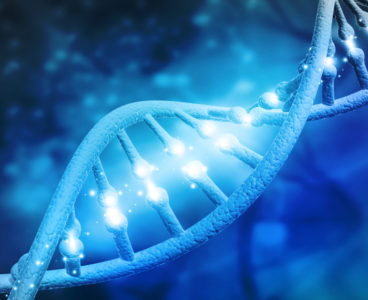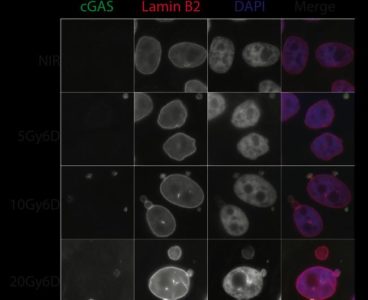
Guided by CRISPR, Prenatal Gene Editing Used in Treating Congenital Disease Before Birth
There’s a Better Way to Decipher DNA’s Epigenetic Code to Identify Disease
Aspirin Desensitization Improves Alcohol-Induced Allergies in Patients With Underlying Respiratory Disease
Penn Performs First-in-World Robot-Assisted Spinal Surgery
Noah Pernikoff is back to his life in New York City after becoming the first patient in the world to undergo a complex three-part, robotic-assisted surgery. The robotic arms made it possible for the multidisciplinary team at Penn to successfully remove a rare tumor from Noah’s neck, where the skull meets the spine. The ground…
Researchers Identify New Treatment Target for Melanoma
Researchers in the Perelman School of Medicine at the University of Pennsylvania have identified a new therapeutic target for the treatment of melanoma. For decades, research has associated female sex and a history of previous pregnancy with better outcomes after a melanoma diagnosis. Now, a research team from Perelman School of Medicine at the University…
Penn Medicine Launches First App for Bariatric Surgery Patients Using Apple CareKit
Study Identifies New Malaria Parasites in Wild Bonobos
Malaria parasites, although widespread among wild chimpanzees and gorillas, have not been detected in bonobos, a chimp cousin. Reasoning that previous studies may have missed infected bonobo populations, a team led by Beatrice Hahn, MD, a professor of Microbiology in the Perelman School of Medicine at the University of Pennsylvania, conducted a more extensive survey,…
Psoriasis Severity Linked to Increased Risk of Type 2 Diabetes
People with psoriasis are at a higher risk to develop type 2 diabetes than those without psoriasis, and the risk increases dramatically based on the severity of the disease. Researchers from the Perelman School of Medicine at the University of Pennsylvania found people with psoriasis that covers 10 percent of their body or more are…
Severity of Psoriasis Linked to Increased Risk of Death
The more the surface area of the body is covered by psoriasis, the greater the risk of death for the patient suffering from the condition, according to a new analysis by researchers in the Perelman School of Medicine at the University of Pennsylvania. The study, which published today in the Journal of Investigative Dermatology, is the…
How DNA Damage Turns Immune Cells Against Cancer
Cancer is essentially a disease of the cell replication cycle. The goal of treating the disease is to permanently kill off the cells that replicate with abandon without any molecular brakes. Chemotherapy and radiation cause breaks in DNA, and eventually, death even in these out-of-control cells. Within minutes after being exposed to treatment, cancer cells…
Glowing Tumor Technology Helps Surgeons Remove Hidden Cancer Cells
Surgeons were able to identify and remove a greater number of cancerous nodules from lung cancer patients when combining intraoperative molecular imaging (IMI) – through the use of a contrast agent that makes tumor cells glow during surgery – with preoperative positron emission tomography (PET) scans. The study from the Abramson Cancer Center at the…
Researchers Identify Brain Network Organization Changes
As children age into adolescence and on into young adulthood, they show dramatic improvements in their ability to control impulses, stay organized, and make decisions. Those executive functions of the brain are key factors in determining outcomes including their educational success, and whether they will use recreational drugs, or develop psychiatric illness. In a new…
Study Finds Relationship Between Common Brain Disease and Gut Microbiome
Bacteria in the gut microbiome drive the formation of cerebral cavernous malformations (CCMs), clusters of dilated, thin-walled blood vessels in the brain that can cause stroke and seizures, according to new research published this week in Nature by researchers from the Perelman School of Medicine at the University of Pennsylvania. Led by Mark Kahn, MD, a professor of Cardiovascular Medicine, the…
In-Depth Gene Search Reveals New Mutations, Drug Targets in Rare Adrenal Tumors
Using Fat to Help Wounds Heal Without Scars
Doctors have found a way to manipulate wounds to heal as regenerated skin rather than scar tissue. The method involves transforming the most common type of cells found in wounds into fat cells – something that was previously thought to be impossible in humans. Researchers began this work at the Perelman School of Medicine at…













